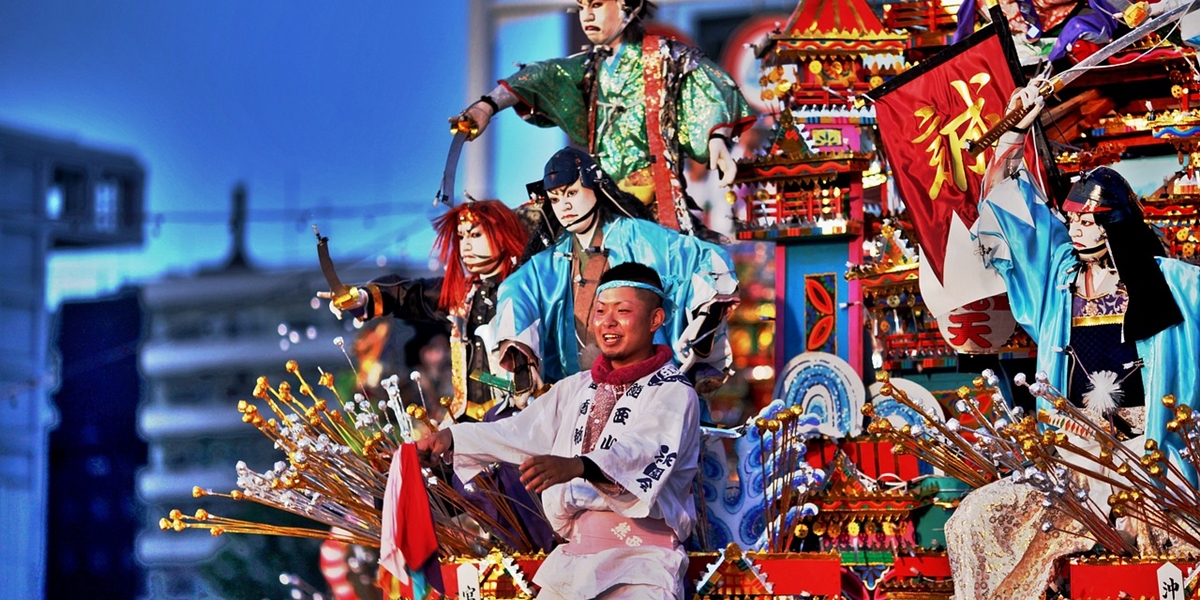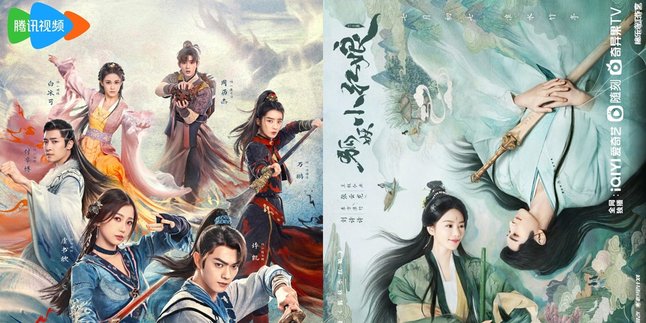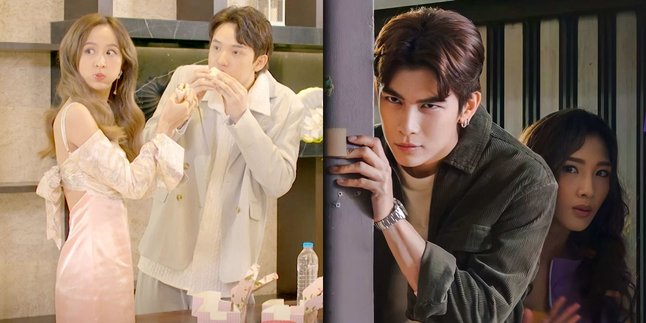Kapanlagi.com - What are Japanese cultures? Japanese cultures are a unique blend of rich ancient traditions and captivating modern innovations. From traditional arts to cutting-edge technology, Japan offers a cultural heritage that transcends time and space.
In this article, Kapanlagi will provide various captivating aspects of Japanese cultures, including graceful Nihonga paintings, magnificent traditional performing arts, delicious gastronomic traditions, and world-leading advanced technology.
Let's find out what Japanese cultures you can know. And get ready to be amazed by the beauty and diversity of cultures that emanate from this land of the rising sun.
1. Understanding Japanese Culture
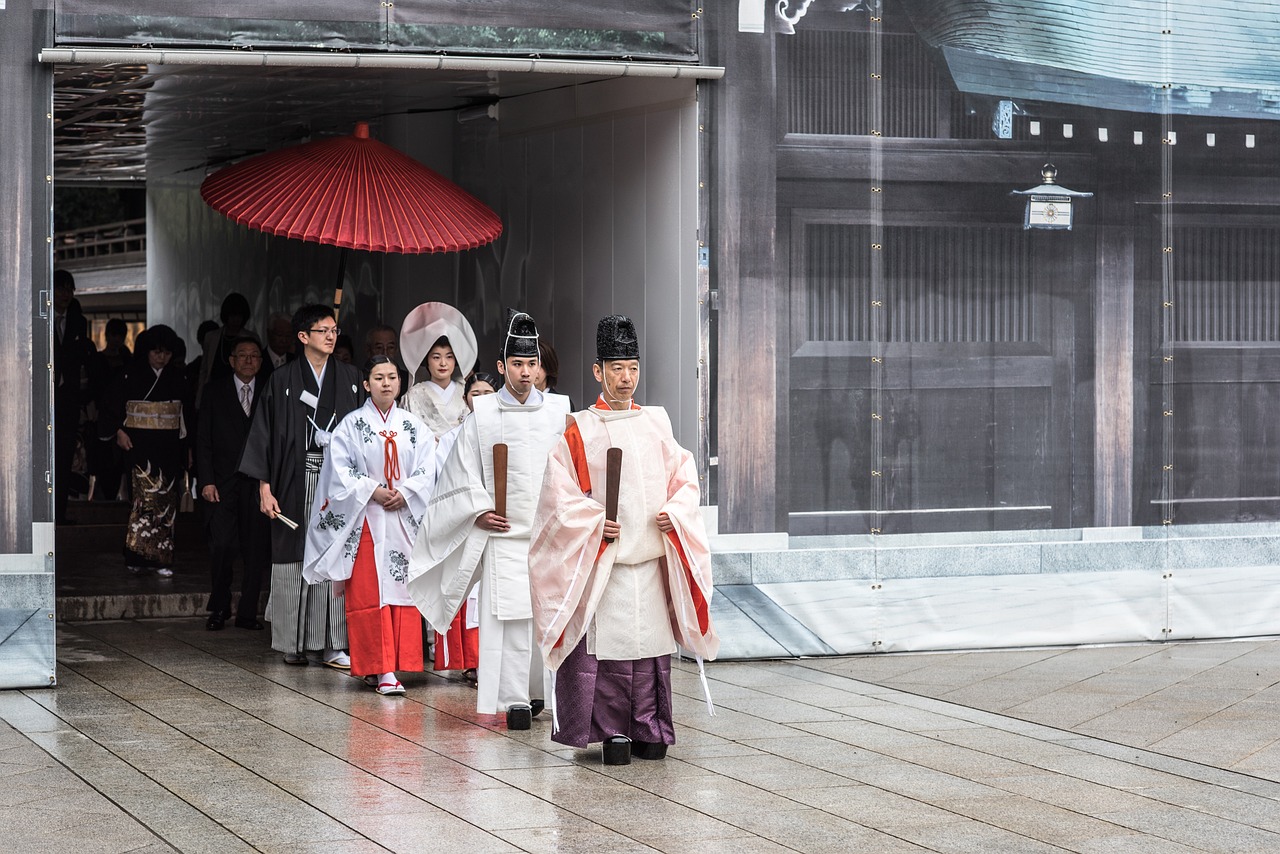
Illustration (credit: pixabay.com)
There are many cultures in Japan that can be known. Japanese culture is a collection of values, traditions, social norms, beliefs, arts, and practices that have been formed and inherited from generation to generation within Japanese society. Japanese culture has unique characteristics that encompass various aspects of daily life.
Starting from social, political, economic, to spiritual aspects. Understanding Japanese culture includes the complexity and uniqueness of Japanese society that has developed for thousands of years. It includes all aspects of daily life, beliefs, and practices that shape the collective identity of the Japanese nation.
It is important to note that Japanese culture is highly diverse and continues to evolve over time. However, some common characteristics often associated with Japanese culture include:
1. Politeness and Etiquette: Politeness and etiquette are highly important in social interactions in Japan. Norms such as greeting with respect, respecting elders, and maintaining cleanliness of the environment are highly valued.
2. Appreciation of Tradition: Japan has a rich traditional heritage, and many Japanese people hold firm to traditional values such as respect for ancestors, ritual ceremonies, and festival celebrations.
3. Hard Work and Discipline: Strong work ethic and discipline in achieving success are deeply ingrained values in Japanese society. The concept of "gambaru" or perseverance and diligence in facing difficulties is highly respected.
4. Balance between Modernity and Tradition: Despite being technologically and industrially advanced, Japanese culture also maintains many traditional aspects in daily life, such as tea ceremonies, martial arts, and traditional festivals.
5. Harmony with Nature: The Japanese view of nature is profound, and principles such as simplicity, balance, and the beauty of nature are emphasized in art, design, and daily life practices.
6. Appreciation of Beauty and Aesthetics: Japan is known for its love for beauty in all aspects, whether in visual arts, architecture, spatial layout, or dining etiquette.
2. History of Japanese Culture
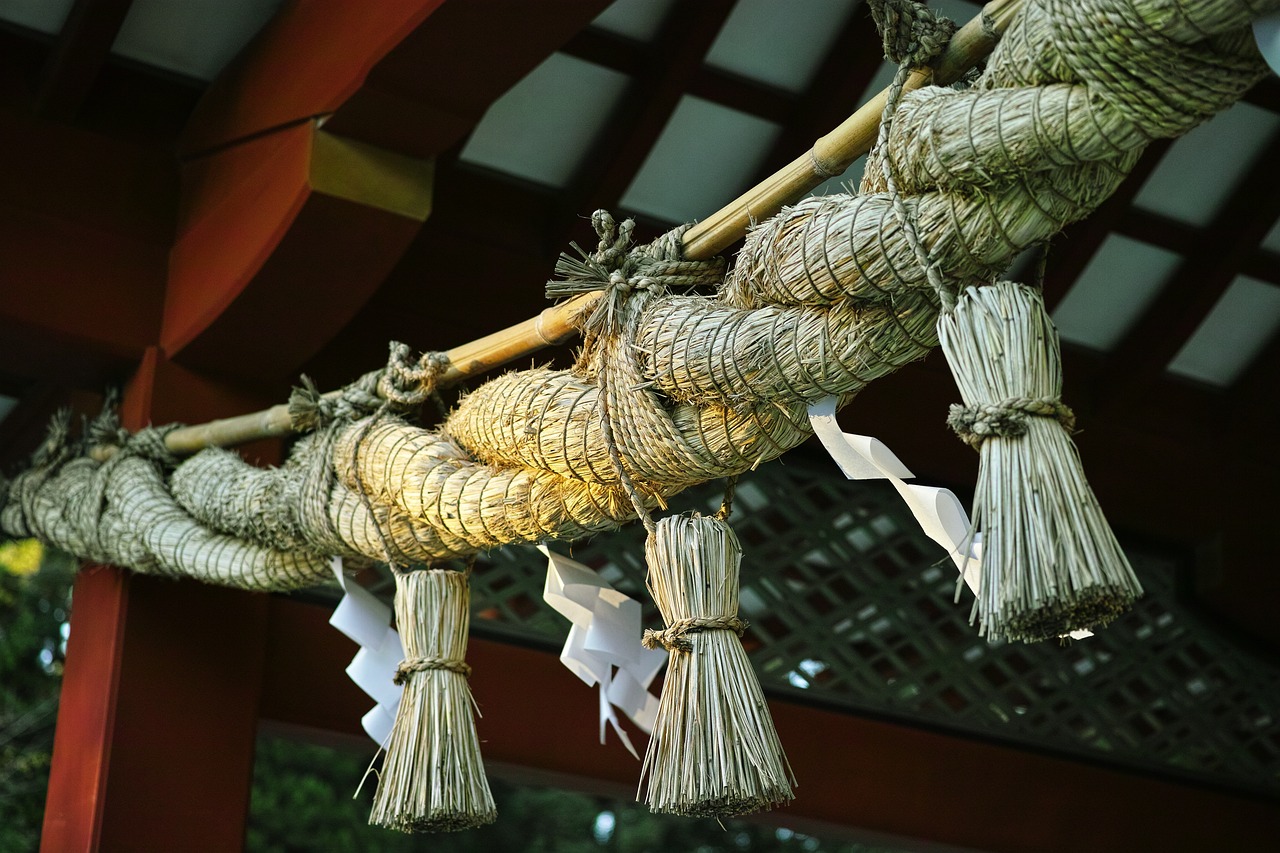
Illustration (credit: pixabay.com)
Before knowing what Japanese culture KLovers can know, it is also necessary to know the history of Japanese culture itself. The history of Japanese culture is very long and complex, developing from ancient times to the modern era with influences from various foreign cultures and internal developments.
In addition, the history of Japanese culture also reflects a combination of rich ancient traditions with new influences that continue to develop over time. Therefore, culture in Japan continues to evolve from one era to another. And here is a general overview of the history of Japanese culture:
Ancient Times (10,000 BC - 710 AD)
1. Ancient Japan began around 10,000 BC with the arrival of the first inhabitants to the Japanese islands.
2. Jomon culture, known for its distinctive decorative ceramics, is the oldest known culture in Japan.
3. Yayoi culture brought agriculture, metalworking, and a more complex social system to Japan.
Classical Period (710 AD - 1185 AD)
1. In 710, the capital was moved to Nara, and the Nara period began. Buddhism was officially introduced to Japan during this period.
2. In 794, the capital was moved again to Heian-kyo (now Kyoto), which marked the beginning of the Heian period.
3. The Heian period witnessed the development of a rich aristocratic culture, including classical literature such as the Tale of Genji.
4. Towards the end of this period, internal wars triggered political chaos.
Feudal Period (1185 AD - 1603 AD)
1. The Kamakura period began after Minamoto no Yoritomo's victory in 1185, bringing shogunate power to Japan.
2. Muromachi Period (1336-1573) witnessed the development of martial arts, Noh theater, and calligraphy.
3.In the 16th century, there was a prolonged civil war known as the Sengoku Period, where regional daimyo (rulers) competed for power.
Edo Period (1603 A.D. - 1868 A.D.)
1.The Edo Period began with the reign of Tokugawa Ieyasu, who established a stable shogunate government.
2.Edo (now Tokyo) became a rapidly developing cultural center, with the emergence of arts such as ukiyo-e (woodblock prints) and kabuki (popular theater).
3.In the early Edo Period, Japan experienced relative isolation from the outside world, but contact with Western culture increased over time.
Modern Era (1868 A.D. - Present)
1.The Meiji Restoration in 1868 marked the end of feudal rule and the beginning of Japan's modernization.
2.Japan adopted many elements of Western culture while still maintaining Japanese traditions.
3. This period witnessed rapid industrial development, economic growth, and social changes.
4.After the defeat in World War II, Japan underwent a reconstruction process that gave rise to an economic revival period known as the "Japanese Economic Miracle".
5.Japanese pop culture, such as anime, manga, and J-Pop music, became popular worldwide in the late 20th and early 21st centuries.
3. List of Japanese Culture
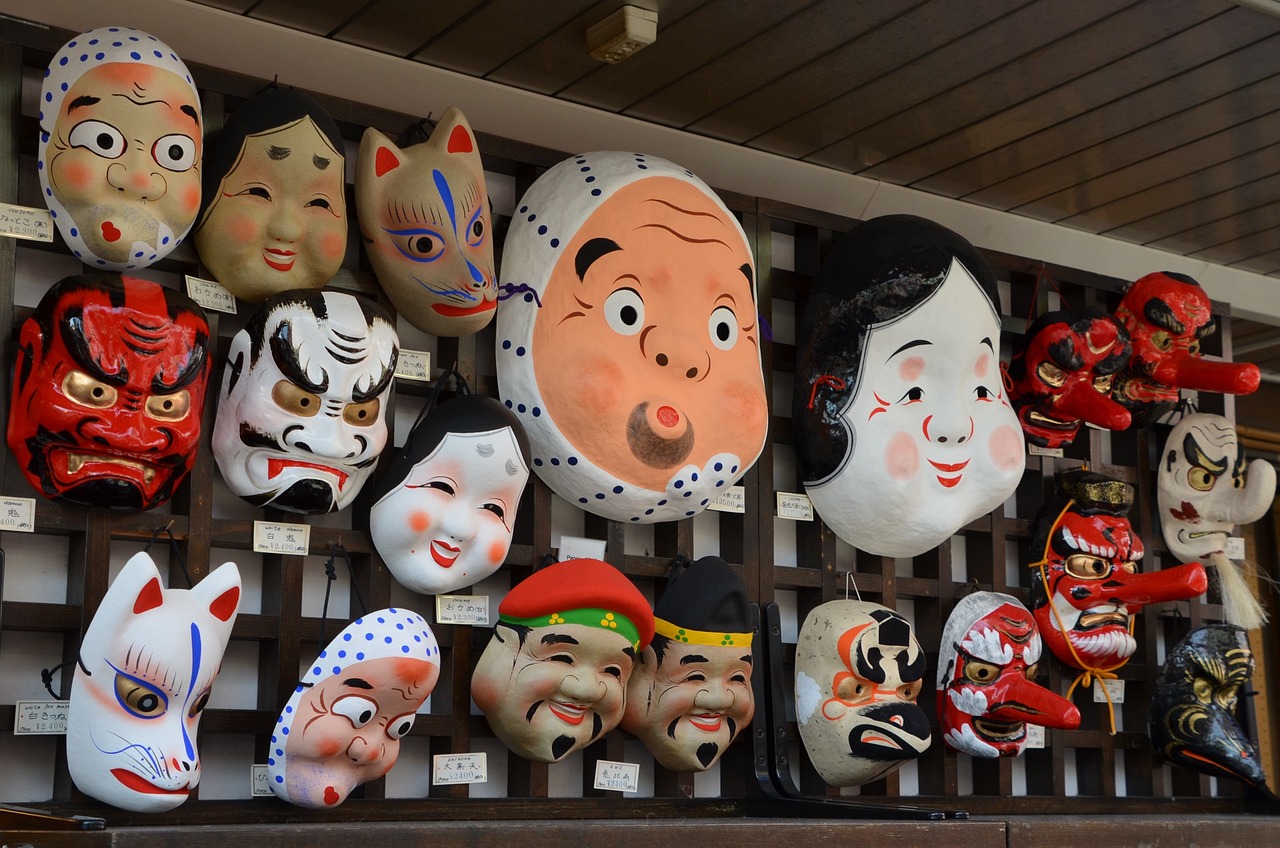
Illustration (credit: pixabay.com)
What is Japanese culture? Japanese culture is incredibly diverse and rich, encompassing various aspects of daily life, traditions, arts, and values. This list is only a small part of the broader wealth of Japanese culture.
Each aspect of this culture reflects the beauty, depth of history, and unique development of Japanese culture that continues to inspire many people worldwide. Here are some aspects of Japanese culture with detailed explanations:
1.Japanese Language (Nihongo)
The official language of Japan is Japanese (Nihongo), which uses kanji, hiragana, and katakana characters. Kanji is logographic characters adopted from the Chinese language, while hiragana and katakana are Japanese scripts.
2.Painting Art (Nihonga)
Traditional Japanese painting, known as Nihonga, uses watercolor on washi paper. Nihonga encompasses various styles and themes, often depicting nature, landscapes, or mythological stories.
3. Calligraphy (Shodo)
The art of writing Japanese characters with a brush and ink, known as Shodo, is highly respected in Japan. Shodo requires high technical skills and deep artistic expression.
4. Ceramics (Yakimono)
Japan has a rich ceramic tradition, with various styles and techniques such as raku, hagi, and karatsu. Japanese ceramics often emphasize simplicity, the beauty of nature, and finesse in design.
5. Performing Arts (Geinou)
Japanese performing arts include traditional theaters such as Noh, Kabuki, and Bunraku, which have a rich and unique cultural heritage. These performances include mesmerizing dance, drama, and music.
6. Music Performances (Gagaku)
Gagaku is ancient Japanese court music consisting of instruments such as biwa (a type of string instrument), shakuhachi (bamboo flute), and hichiriki (bamboo flute).
7. Martial Arts (Budo)
Japanese martial arts, such as Judo, Karate, Kendo, and Aikido, are not only forms of sports and self-defense but also considered as arts that value discipline, finesse, and wisdom.
8. Gardens (Niwa)
Japanese garden art is the art of combining natural elements such as rocks, water, plants, and pathways to create beautiful, harmonious spaces that often have spiritual meanings.
9. Japanese Pop Culture (J-Pop)
The Japanese entertainment industry, including music, anime, manga, and video games, has a significant global influence. J-Pop encompasses various popular music genres produced in Japan.
10. Culinary Traditions (Washoku)
Japanese cuisine, known as Washoku, is famous worldwide for its diversity and deliciousness. Japanese foods such as sushi, sashimi, ramen, and tempura have become global favorites.
11. Traditional Festival (Matsuri)
Japan has many traditional festivals held throughout the year, reflecting cultural, religious, and seasonal celebrations. Examples include Hanami (cherry blossom viewing), Obon (ancestor festival), Gion Matsuri in Kyoto, and many more. These festivals often involve parades, fireworks displays, traditional dances, and religious ceremonies.
12. Modern Technology
Japan is one of the most technologically advanced countries in the world. Japanese innovations encompass various fields such as consumer electronics, transportation, robotics, and medical sciences. Additionally, Japan serves as a center for research and development in many advanced technological areas, including artificial intelligence, electric vehicles, and medical technology.
Those are the various aspects of Japanese culture that you can learn and understand, complete with their histories. With its incredible cultural richness, Japan offers an unforgettable experience for anyone who gets to know it.
(kpl/dhm)
Disclaimer: This translation from Bahasa Indonesia to English has been generated by Artificial Intelligence.
